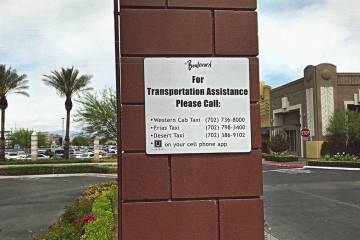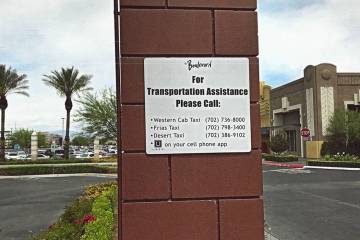The IRS won’t call or email you, but a tax scammer will
Tax season is here, and scammers are trolling for the gullible and stupid.
My father got two robocalls this month telling him he was being sued by the Internal Revenue Service and giving him a number to call. He didn’t call the number, but he told me about it, clearly hinting this ruse was column-worthy.
I said everyone knows it’s a scam, so it wasn’t column-worthy.
Then I talked to my accountant. What he said horrified me and prompted this column.
One of his clients actually gave his personal information to such a tax scammer.
Two of his clients, who are Las Vegas cops, called him to ask whether he’d made a mistake in filing a previous tax return. Aren’t police (and journalists) paid to be suspicious and recognize cons? Apparently the scam is so persuasive, even local police wondered if it could be true.
The IRS issues warnings. The television stations warn viewers. Attorney General Adam Laxalt warns the public. AARP warns readers.
Now I am warning you.
If you have an issue with the IRS, the agency puts it in writing. Agents don’t cold call, and they don’t inquire via email.
Here are just a few of the pitches made by much-despised scammers, starting with the latest con:
— They claim they have your tax return and need to verify details to process it. Can you provide a Social Security number, bank account number and perhaps some credit card numbers?
— They become aggressive, demanding payment for a tax bill, asking for cash via a prepaid debit card or wire transfer.
— Then there are the robocalls warning that the IRS is about to sue you, which feature a computer-generated voice and leave a telephone number to call, like they did for my father.
Las Vegan Kathleen Gibbons received such a robocall. It said: “The IRS has started an action against you.” She realized it was a scam and didn’t call back but said “older people are going to have a heart attack” if they get a call like this.
Screen all your calls, she advised. Don’t respond to calls with clever-sounding and frightening pitches.
IRS Commissioner John Koskinen said he’s even received these IRS calls. “Don’t be fooled. The IRS won’t be calling you out of the blue asking you to verify your personal tax information or aggressively threatening you to make an immediate payment.”
Since October 2013, more than 5,000 people have paid a total of $26.5 million to these much-despised scammers, an average of $5,300 each.
Then there are the phishing scams via email or the Internet.
The IRS said this year alone, the IRS has seen a 400 percent increase in phishing — and not just to individuals.
“Payroll and human resources professionals should be aware of an emerging phishing email scheme that purports to be from company executives and requests personal information on employees,” the IRS wrote in a news release. “The email contains the actual name of the company chief executive officer. In this scam, the ‘CEO’ sends an email to a company payroll office employee and requests a list of employees and financial and personal information including Social Security numbers.”
If you respond and click on an official-looking site, there’s a good chance you‘ll infect your computer with malware and make yourself vulnerable to criminals. Aside from phone calls and emails, scammers have added texting to their bag of tricks. Even tax preparers are receiving emails asking for their online credentials to IRS services.
How can these rotten scammers sleep at night?
Jane Ann Morrison’s column runs Thursdays. Leave messages for her at 702-383-0275 or email jmorrison@reviewjournal.com. Find her on Twitter: @janeannmorrison
RELATED
7 signs you're the victim of a tax scam
11 things you need to know when filing your tax return
19 tax-filing deals and freebies for the 2016 tax season






















